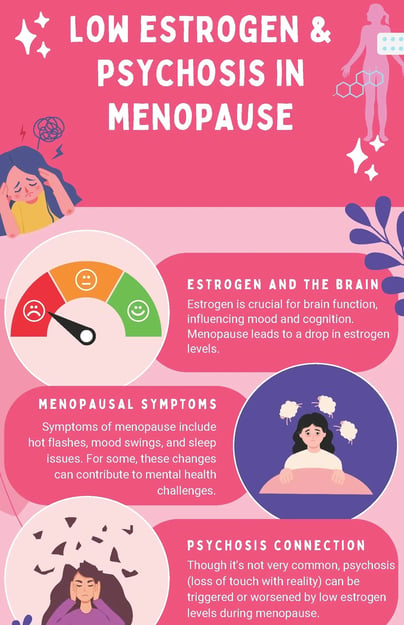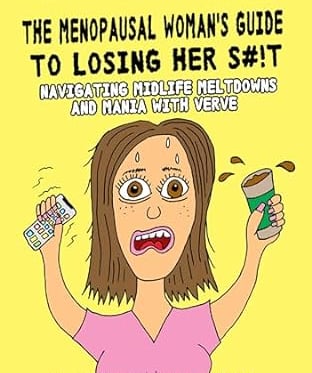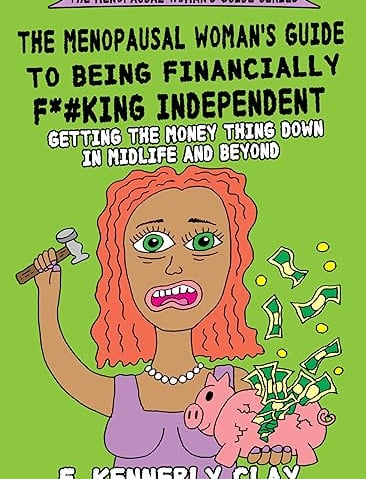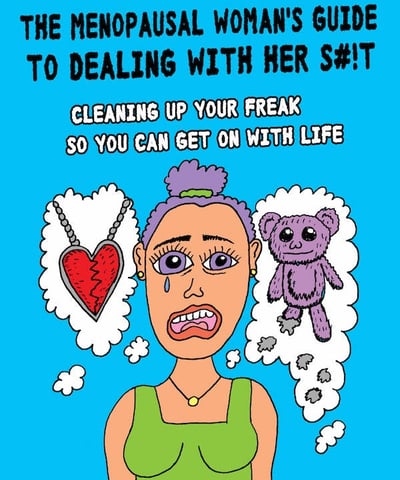Low Estrogen and Psychosis in Menopause
Plunging estrogen levels, especially during menopause, affect the brain's ability to regulate mood and cognition. But can low estrogen really lead to psychosis?
MENOPAUSAL MENTAL HEALTHMENOPAUSAL SYMPTOMS
Kennerly Clay
8/9/20244 min read


Does low estrogen cause psychosis?
Psychosis is a mental health condition characterized by a loss of contact with reality, often manifesting as hallucinations or delusions. While there are many factors that can contribute to the onset of psychosis, recent research has been exploring the potential role of hormones, particularly estrogen. But does low estrogen cause psychosis?
Estrogen, often referred to as the "female hormone," is crucial not only for reproductive health but also for brain function. Estrogen receptors are found throughout the brain, particularly in areas associated with mood regulation, cognition, and emotion. This hormone plays a key role in modulating neurotransmitters such as serotonin, dopamine, and glutamate, which are essential for mental health in menopause. Its decline can contribute to emotional challenges, including depression in menopause.
If you or someone you know is in crisis, please call 988, the Suicide & Crisis Lifeline in the United States.
Low estrogen and its effects on the brain
When estrogen levels drop, especially during menopause, the brain's ability to regulate mood and cognition can be significantly affected. This is why many women experience mood swings, anxiety, and depression during perimenopause and menopause. But what about psychosis? Can low estrogen really lead to such a severe mental health condition?
The evidence: What does the research say?
Several studies have investigated the potential link between low estrogen and psychosis. One of the most notable is a study published in JAMA Psychiatry by Kulkarni et al. The study explored the impact of estrogen therapy on women with schizophrenia, a disorder that can involve psychosis. The researchers found that women who received estrogen therapy showed a significant reduction in the severity of their psychotic symptoms compared to those who did not receive the therapy.
Another study, published in Molecular Psychiatry in 2016 by Bergink et al., examined postpartum psychosis, a rare but severe condition that can occur after childbirth. The study suggested that the rapid drop in estrogen levels after delivery might trigger psychosis in susceptible women. This finding aligns with the theory that low estrogen levels could be a contributing factor in the development of psychosis.
Researchers found that women who received estrogen therapy showed a significant reduction in the severity of their psychotic symptoms compared to those who did not receive the therapy.
Low estrogen and psychosis in menopause
Get the infographic that explores the connection between declining estrogen levels in menopause and the potential for psychosis in some women.


Postpartum psychosis: A closer look
Postpartum psychosis is an extreme example of how hormonal changes can impact mental health. The condition, which affects approximately 1 in 1,000 new mothers, typically develops within the first two weeks after childbirth. Symptoms can include delusions, hallucinations, and severe mood swings. The exact cause of postpartum psychosis is not fully understood, but the sharp decline in estrogen levels after giving birth is considered a major contributing factor.
In another study, researchers found that women with a history of mood disorders were at a higher risk of developing postpartum psychosis, especially when estrogen levels dropped suddenly after delivery. This research underscores the importance of hormonal balance in maintaining mental health, particularly during periods of significant hormonal fluctuation.
Estrogen therapy: A potential treatment?
Given the evidence linking low estrogen levels to psychosis, it's natural to wonder whether estrogen therapy could be an effective treatment. The 2017 study by Kulkarni et al. mentioned earlier supports this idea. However, estrogen therapy is not without risks. It has been associated with an increased risk of breast cancer, blood clots, and stroke, particularly in older women or those with certain risk factors.
Therefore, while estrogen therapy may hold promise for some women with psychosis, it is not a one-size-fits-all solution. Healthcare providers must carefully weigh the potential benefits against the risks when considering this treatment option.
Other factors at play
It's important to note that while low estrogen levels may contribute to the development of psychosis in some individuals, it is rarely the sole cause. Psychosis is a complex condition with many contributing factors, including genetics, stress, trauma, and other underlying mental health disorders. Therefore, treating menopause-associated psychosis often requires a multifaceted approach that addresses all potential contributing factors, not just hormone levels.
The bottom line: A complex relationship
So, does low estrogen cause psychosis? The answer is not straightforward. While there is evidence to suggest that low estrogen levels can contribute to the development of psychosis, particularly in cases like postpartum psychosis, it is unlikely to be the sole cause. Instead, low estrogen may act as one of many factors that can trigger or exacerbate psychosis in susceptible individuals.
For those experiencing symptoms of psychosis, it is crucial to seek professional help. A healthcare provider can assess hormone levels and consider whether hormone therapy might be beneficial as part of a broader treatment plan.
The importance of hormonal balance
Maintaining hormonal balance is essential for overall health, including mental well-being. While more research is needed to fully understand the relationship between estrogen and psychosis, the existing evidence suggests that hormone levels can play a significant role in mental health in menopause. If you're going through menopause or postpartum changes, being aware of these potential effects can empower you to seek appropriate care and support when needed.
Books for women who are losing it in menopause
Mental Health
Losing your mind in peri/menopause?
The menopausal woman's guide series
Financial Health
Had enough of financial insanity?
Personal Growth
Triggers? Old stuff kicking up?
Related topics
Explore helpful articles, tips, and advice for women who are losing their shit in menopause.
Community
Stay Connected
© 2024. Eclectic Content, Inc. All rights reserved.






